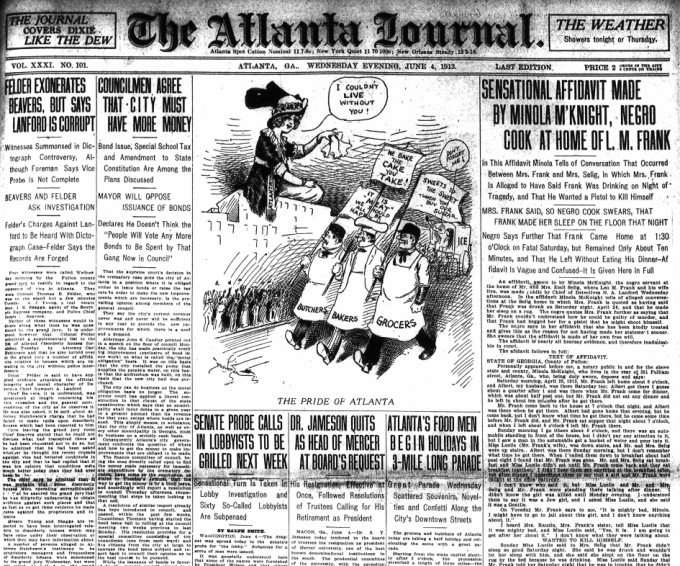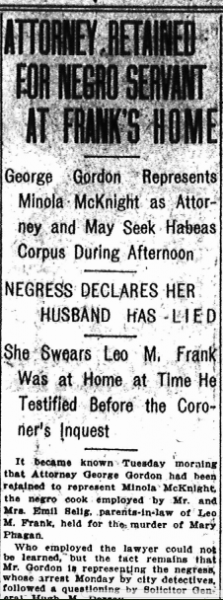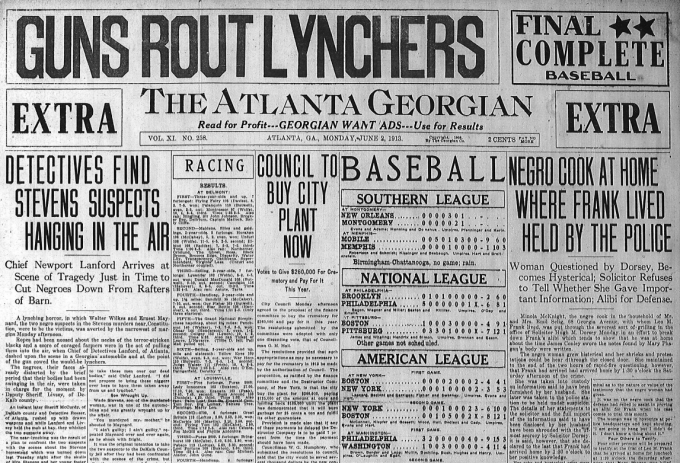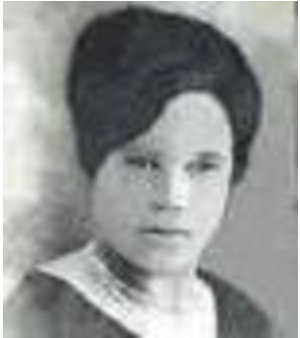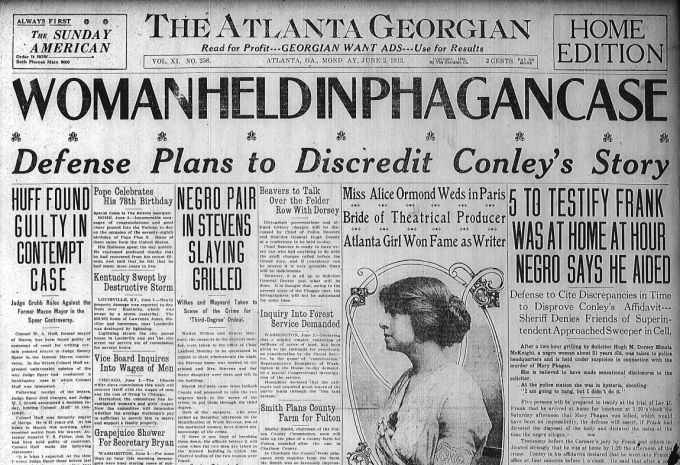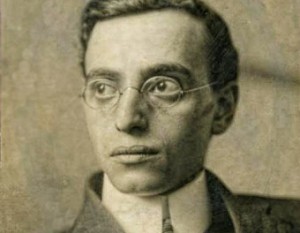Another in our series of new transcriptions of contemporary articles on the Leo Frank case.
Atlanta Journal
Wednesday, June 4th, 1913
In This Affidavit Minola Tells of Conversation That Occurred Between Mrs. Frank and Mrs. Selig, In Which Mrs. Frank Is Alleged to Have Said Frank Was Drinking on Night of Tragedy, and That He Wanted a Pistol to Kill Himself
MRS. FRANK SAID, SO NEGRO COOK SWEARS, THAT FRANK MADE HER SLEEP ON THE FLOOR THAT NIGHT
Negro Says Further That Frank Came Home at 1:30 o’Clock on Fatal Saturday, but Remained Only About Ten Minutes, and That He Left Without Eating His Dinner—Affidavit Is Vague and Confused—It Is Given Here In Full
An affidavit, sworn to by Minola McKnight, the negro servant at the home of Mr. and Mrs. Emil Selig, where Leo M. Frank and his wife live, was made public by Chief of Detectives N. A. Lanford Wednesday afternoon. In the affidavit Minola McKnight tells of alleged conversations at the Selig home in which Mrs. Frank is quoted as having said that Frank was drunk on Saturday night, April 26, and that he made her sleep on a rug. The negro quotes Mrs. Frank further as saying that Mr. Frank couldn’t understand how he could be guilty of murder, and that Frank had begged her for a pistol that he might shoot himself.
The negro says in her affidavit that she has been kindly treated and gives this as the reason for not having made her statement sooner. She swears that the affidavit is made of her own free will.
The affidavit is nearly all hearsay evidence, and therefore inadmissible in court.
The affidavit follows in full: Continue Reading →

